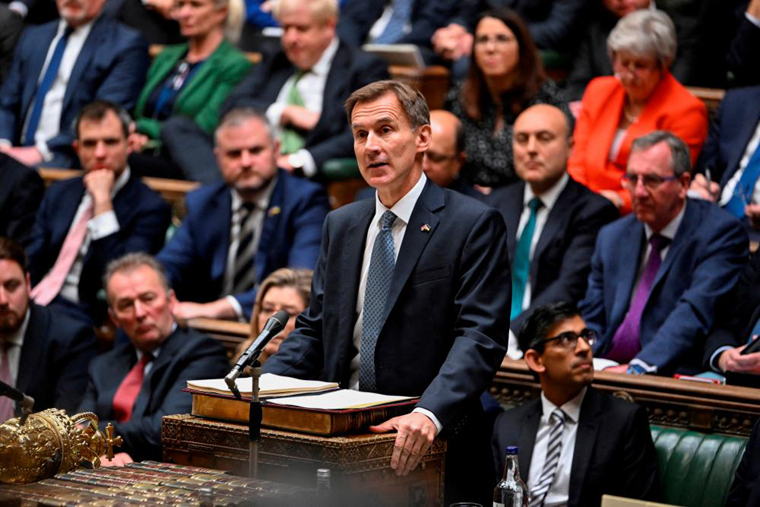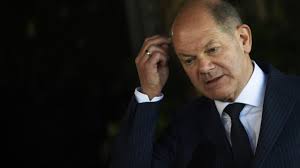
LONDON, March 15 (NNN-AGENCIES) — Britain’s finance minister unveils a cost-of-living budget on Wednesday as the government seeks to keep a grip on public spending in the face of a fresh wave of strikes over pay.
Chancellor of the Exchequer Jeremy Hunt delivers his tax and spending plan to parliament, as teachers, junior doctors, civil servants, BBC journalists and drivers on London’s underground Tube railway stage the latest day of mass walkouts.
Public and private sector workers show little sign of ending strike action that began last year when rocketing inflation slashed the value of wages.
Ahead of the budget, Hunt has flagged increased childcare funding and proposals to encourage Britons aged over 50 to rejoin the jobs market.
The government is also expected to confirm plans to entice those who have dropped out of the jobs market back to work.
It is looking to fill 1.1 million staff vacancies — in part caused by a lack of EU workers following Brexit, and a record number of people classed as long-term sick.
Reports add that Hunt could allow workers to put more tax-free money into their private pensions.
“Reports of senior doctors retiring early due to the impact of pension tax allowances… have undoubtedly been of particular concern to the government given the pressures already on the health system following the pandemic,” noted Tom Selby, head of retirement policy at AJ Bell.
“However, both the lifetime and annual allowance apply across all types of private pensions and so this announcement would increase the retirement savings limits for millions of Brits.”
In neighbouring France, the Senate at the weekend voted to approve a deeply unpopular reform to the country’s pension system.
The headline measure is a hike in the minimum retirement age to 64 from 62, seen by many as unfair to people who started working young.
Britain’s retirement age of 66 is meanwhile set to increase before the end of the decade, meaning a longer wait to access the state pension. Private pensions are available at an earlier age.
As well as pay concerns, health staff are protesting against overwork brought on by labour shortages, with doctors below consultant level among the hundreds of thousands expected to strike on Wednesday.
Prime Minister Rishi Sunak’s spokesman said the Conservative government wanted to work with unions to achieve “fair and reasonable” pay rises.
“But we’ve been clear that we want to see strike action end before we do so.”
Thousands of public and private sector workers have been striking for months as wage increases fail to keep pace with UK inflation, which remains above 10 percent.
As millions of Britons endure a cost-of-living crisis, the government has subsidised soaring energy bills but some of that support is expected to end from next month.
Wednesday’s budget may offer fresh help, according to economists, after the government recorded a stronger surplus than expected in January and the country avoided recession last year.
As is customary with recent UK budgets, the government has already trailed a number of announcements set to be included in Hunt’s statement.
Britain on Monday detailed plans to bolster military and security spending to confront the “epoch-defining challenge” posed by China while also countering Russia.
It includes plans to spend an extra o5 billion ($6.1 billion) on defence over the next two years, focused on nuclear resilience and replenishing depleted ammunition stocks.
On Friday, Britain announced a 20-year plan to capture carbon and commit to nuclear energy as it strengthens energy supplies and seeks a net zero economy by mid-century.
Hunt said the move would help to avoid a repeat of rocketing energy bills since the invasion of Ukraine by major oil and gas producer Russia that tightened global supplies. — NNN-AGENCIES





